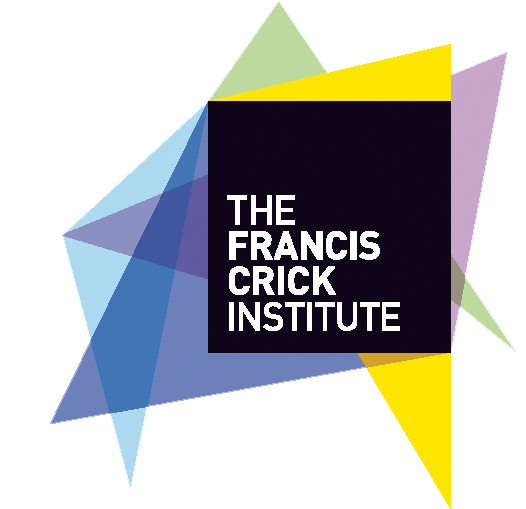17.08.2020
COVID-IP paper in Nature Medicine
The peer-reviewed, improved version of our manuscript – well done, Team!
We focus on immune hallmarks of severe Covid-19 – how are they different from lighter forms of the disease and from other infections. We pinpointed several characteristics (cytokine profile, number and status of some immune cells) allowing us to recognize early patients who will proceed to develop severe Covid-19 and suggest possible treatment.
Thank you to all who helped along – patients, colleagues, reviewers, editors, tolerant family members.
21.07.2020
The people with hidden immunity against Covid-19
While the latest research suggests that antibodies against Covid-19 could be lost in just three months, a new hope has appeared on the horizon.
Prof Hayday explains how T cells, rather than antibodies, could help provide immunity against Covid-19 in this article by the BBC Future.

8.07.2020
How the Coronavirus Short-Circuits the Immune System – Part II
Listen to Adrian Hayday explain how it compares to HIV, and what we can learn from it, at the BBC World Service Newshour radio broadcast.
Listen here from 26:52.
27.06.2020
How the Coronavirus Short-Circuits the Immune System
Many thanks to the New York Times for highlighting our research on the immune profile of COVID-19 patients in the following article.
In a disturbing parallel to HIV, the novel coronavirus can cause a depletion of important immune cells.
Dr. Hayday and his colleagues began with the assumption that the patients would generate a profound immune response to the coronavirus. That is why most people recover from infections with few, if any, symptoms.
Now researchers have discovered yet another unpleasant surprise. In many patients hospitalized with the coronavirus, the immune system is threatened by a depletion of certain essential cells; and those who get very sick from the virus could have immune systems that become impaired because they overreact, as happens in sepsis patients. Read more about the COVID-IP contributions to our understanding of this disease here.
16.06.2020
How does coronavirus harm us, and how do our bodies respond?
Prof Adrian Hayday and Dr Manu Shankar-Hari were invited to advise the House of Lord’s Science and Technology Committee on The Science of COVID-19. Click here to listen to their advice, and its repercussion in this article by The Guardian.
09.06.2020
Our results are out on Medrxiv!
A consensus Covid-19 immune signature combines immuno-protection with discrete sepsis-like traits associated with poor prognosis
Person-to-person transmission of SARS-CoV-2 virus has triggered a global emergency because of its potential to cause life-threatening Covid-19 disease. By comparison to pauci-symptomatic virus clearance by most individuals, Covid-19 has been proposed to reflect insufficient and/or pathologically exaggerated immune responses. Here we identify a consensus peripheral blood immune signature across 63 hospital-treated Covid-19 patients who were otherwise highly heterogeneous. The core signature conspicuously blended adaptive B cell responses typical of virus infection or vaccination with discrete traits hitherto associated with sepsis, including monocyte and dendritic cell dampening, and hyperactivation and depletion of discrete T cell subsets. This blending of immuno-protective and immuno-pathogenic potentials was exemplified by near-universal CXCL10/IP10 upregulation, as occurred in SARS1 and MERS. Moreover, specific parameters including CXCL10/IP10 over-expression, T cell proliferation, and basophil and plasmacytoid dendritic cell depletion correlated, often prognostically, with Covid-19 progression, collectively composing a resource to inform SARS-CoV-2 pathobiology and risk-based patient stratification.
To read more about it please visit here.
22.05.2020
Preliminary results
The project identified two prominent immunological signatures in the blood of Covid-19 patients that could be used to identify the patients most likely to do worse and require additional treatment.
Click here to know more…22.05.2020
We are in the news!!
Blood test could track immune response to COVID-19
The COVID-IP project has gathered huge media attention. Read the stories here:
13.05.2020
Helping to find a Vaccine & Treatment for COVID-19
The Covid-IP Project Will Help Understand Our Immune Response To The Disease.
This week’s RELAXBACK UK SHOW hosted by Mike Dilke on UK Health Radio has Professor Adrian Hayday explaining the COVID-IP project he is running to understand more about the human response to the Covid-19 disease.
Hear about his work & thoughts on the future of combatting the disease.
12.05.2020
COVID-19 immunology research: what do we know and what are the priorities?

How much do antibodies provide future protection against Covid-19? How long might immunity last, and what do we know about reinfection? What vaccine research is underway?
Professor Adrian Hayday, senior group leader at The Francis Crick Institute and King’s College London, joins the taskforce of 15 leading immunology experts in the fight against COVID-19 in this report by The Academy of Medical Sciences and the British Society for Immunology to try to answer some of these questions.
Scientific investigation of the COVID-19 disease is unprecedented and based on a remarkable mobilisation of international expertise and data sharing. Understanding our immunological responses to SARS-CoV-2 virus will help us develop successful treatments and vaccines, identify vulnerable groups and inform public health measures to control COVID-19 outbreaks. This new expert summary aims to help researchers, funders and policymakers navigate the existing research findings; and identifies urgent research priorities that will make the biggest difference to patients and society, whilst highlighting knowledge gaps that could hamper efforts to get the pandemic under control.
To read more about this please visit here.




